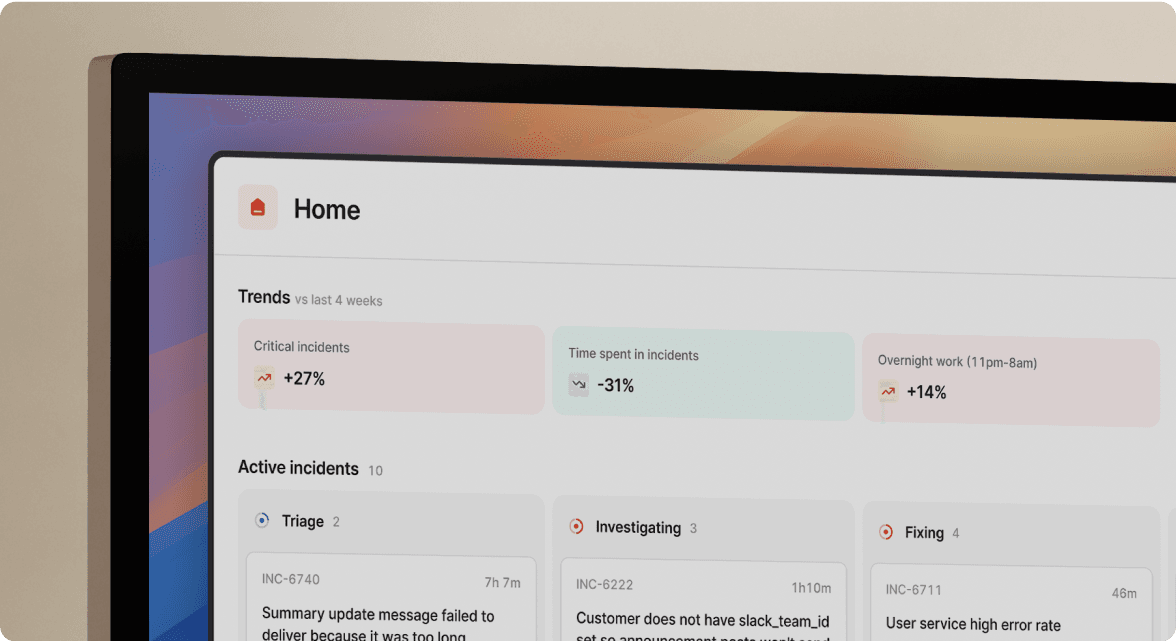On-call readiness and alert insights
October 8, 2024

On-call readiness
When migrating to a new On-call tool, you want to understand how prepared your team is to start receiving pages and be reachable when needed.
We have now introduced On-call readiness insights to help you track your migration and onboarding of new responders going on-call. At a glance, you can see responder adoption with different notification methods:
- How people are reachable (via the app, phone, etc.)
- What percentage of your on-call responders are reachable through different methods
You’ll also be able to drill down into individual responder setups so that you can contact the right people if necessary.

Alert insights
Understanding when and how your alerting system fires can help you configure it more effectively, reducing unnecessary noise. This can lead to happier and more productive teams—for example, reducing the amount of times they get woken up in the night for flaky alerts.
We've now introduced Alert insights to help you better understand the impact of your alerts on your organization. Alert insights will let you see how your alert volume is evolving over time, as well as identify which alerts are particularly noisy, or which alerts you’re constantly declining.
These insights will help you understand where you might need to invest time to improve team and product health.

🚀 What else we’ve shipped
New
- You can now merge active incidents! This behaves the same way as merging triage incidents, where attachments are brought across and the channel is archived
- 2025 holidays are now included in your schedules holiday view and on-call pay configuration
- We've added the incident update message to the payloads of webhooks
- We've added the ability to create policies and send policy reports for Microsoft Teams organizations
Bug fixes
- The Team Catalog wizard can no longer be completed multiple times via direct link access
- Fixed a bug where SMS incident notification options were overridden when configuring via Slack
- Fixed an issue where we would send the incident summary twice when the incident was resolved
- Prevented custom fields set from alerts from being cleared out when accepting triage incidents
Improvements
- In Insights, we now allow the selection of filter dates outside of the current range
- We now surface any known connection issues with a post-mortem provider when you go to export
- We now sort the names of people who acknowledged an escalation alphabetically in Slack
- Renamed the link to the incident.io dashboard on alert messages to be clear
- We now automatically truncate incident summaries for incident tickets in Jira
- We've made it clearer when you've reached your maximum number of workflows
- We now include context from threaded slack messages in our AI-generated summaries
- We now show whether an in-progress call is in Zoom or Google Meets
So good, you’ll break things on purpose
Ready for modern incident management? Book a call with one of our experts today.

We’d love to talk to you about
- All-in-one incident management
- Our unmatched speed of deployment
- Why we’re loved by users and easily adopted
- How we work for the whole organization



